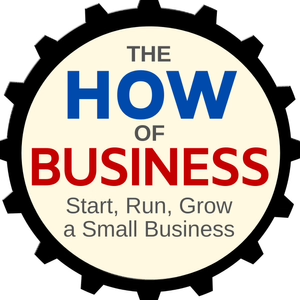
Cognitive Load Multipliers: Assessing Risk Factors for Human Error and Performance Optimization
02/19/25 • 17 min
Cognitive Load Multipliers are quantitative factors used to assess and measure the impact of various stressors on human performance, particularly in high-risk industries such as pharmaceutical manufacturing, healthcare, and aviation. These multipliers help identify conditions that increase cognitive burden, such as task complexity, time pressure, fatigue, interruptions, and environmental distractions, which can significantly raise the likelihood of human error. By applying cognitive load multipliers, organizations can systematically evaluate and mitigate risks, optimize workflows, and enhance overall reliability. Understanding these multipliers allows for the development of targeted strategies, such as improving procedural clarity, minimizing multitasking, and designing error-resistant systems to ensure compliance and operational efficiency.
To learn more, visit:
https://humanerrorsolutions.com/
Listen to more episodes on Mission Matters:
Cognitive Load Multipliers are quantitative factors used to assess and measure the impact of various stressors on human performance, particularly in high-risk industries such as pharmaceutical manufacturing, healthcare, and aviation. These multipliers help identify conditions that increase cognitive burden, such as task complexity, time pressure, fatigue, interruptions, and environmental distractions, which can significantly raise the likelihood of human error. By applying cognitive load multipliers, organizations can systematically evaluate and mitigate risks, optimize workflows, and enhance overall reliability. Understanding these multipliers allows for the development of targeted strategies, such as improving procedural clarity, minimizing multitasking, and designing error-resistant systems to ensure compliance and operational efficiency.
To learn more, visit:
https://humanerrorsolutions.com/
Listen to more episodes on Mission Matters:
Previous Episode

Human Factors in Pharmaceutical Manufacturing
We will explore the critical role of human factors in pharmaceutical manufacturing—how people, processes, and environments interact to influence safety, quality, and efficiency. We break down why human error remains one of the biggest challenges in highly regulated industries and how understanding cognitive load, attention management, and workplace design can significantly reduce mistakes.
We discuss common sources of human error, including fatigue, procedural complexity, and automation bias, and how strategies like task rotation, cognitive-friendly designs, and real-time verification help maintain operator focus. We also examine how culture and leadership impact error reporting and prevention, shifting from a blame mindset to a systems-thinking approach that prioritizes continuous improvement.
Whether you’re on the production floor, in quality assurance, or managing compliance, this conversation will give you actionable insights into how better human factors integration can enhance reliability and regulatory adherence in pharma manufacturing.
To learn more, visit:
https://humanerrorsolutions.com/
Listen to more episodes on Mission Matters:
Next Episode

Human Behavior Experiments and the Psychology of Error
Human behavior experiments like the Loftus and Palmer misinformation effect, Stroop effect, and Milgram’s obedience study reveal how memory distortions, attention failures, authority bias, social conformity, and cognitive biases influence human error. These psychological mechanisms explain why people misremember events, overlook critical details, follow flawed instructions, or make poor decisions under pressure. By understanding these errors—ranging from inattentional blindness to false memory creation—organizations can design better systems to minimize mistakes, improve decision-making, and enhance safety and productivity.
To learn more, visit:
https://humanerrorsolutions.com/
Listen to more episodes on Mission Matters:
If you like this episode you’ll love
Episode Comments
Generate a badge
Get a badge for your website that links back to this episode
<a href="https://goodpods.com/podcasts/the-power-of-why-669884/cognitive-load-multipliers-assessing-risk-factors-for-human-error-and-88545031"> <img src="https://storage.googleapis.com/goodpods-images-bucket/badges/generic-badge-1.svg" alt="listen to cognitive load multipliers: assessing risk factors for human error and performance optimization on goodpods" style="width: 225px" /> </a>
Copy




